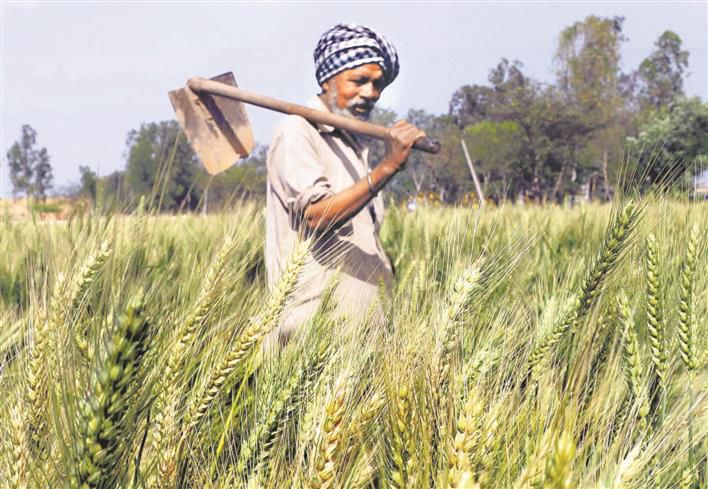To meet workforce boom, need to create 78L non-farm jobs annually
Neeraj Mohan
New Delhi, July 22
The Indian economy must generate nearly 78.5 lakh jobs annually in the non-farm sector to accommodate the rising workforce, according to the Economic Survey for 2023-24.
Tabled by Finance Minister Nirmala Sitharaman on the opening day of the Budget session, the survey underscored the urgency of addressing the country’s employment needs amid rapid economic and technological changes.
According to the survey, the total addition to the workforce reached 4.67 crore in 2023-24, marking the highest increase since 1981-82. The Reserve Bank of India’s KLEMS database indicated a 6 per cent growth rate, surpassing the previous three decades. Formal employment data revealed that over 3.1 crore joined the formal workforce for the first time in FY24, with 2.1 crore enrolling in the Employees’ State Insurance Corporation and another 1 crore in the Employees’ Provident Fund Scheme.
The survey identified artificial intelligence (AI) as a significant disruptor in the future of work, presenting both risks and opportunities. With a young and tech-savvy population, India is well-positioned to leverage AI’s benefits while mitigating its risks.
The BPO sector, however, faces challenges as Generative AI (GenAI) revolutionises routine cognitive tasks, potentially reducing employment in this sector over the next decade. Proactive interventions by the government and industry are essential to position India as a key player in the AI age.
The survey suggested establishing an “Inter-Agency Coordination Authority for AI” to guide research, decision-making and policy planning on AI and job creation. Initiatives like ‘Future Skills Prime’ and ‘YUVAi: Youth for Unnati and Vikas with AI’ aim to connect AI to the youth, supported by a budget of Rs 10,300 crore for the India AI Mission in 2024.
NITI Aayog’s estimates indicate that 77 lakh workers were engaged in the gig economy in 2020-21. The Economic Survey projected this number to expand to 2.35 crore by 2029-30, forming 6.7 per cent of the non-agricultural workforce. The survey emphasised the importance of effective social security initiatives for gig and platform workers, highlighting the Code on Social Security (2020) as a significant advancement.
The survey acknowledged the impact of climate change on jobs and productivity, stressing the need for green technologies and energy alternatives.
The survey noted that India’s corporate sector’s profitability reached a 15-year high in FY24, with profits quadrupling between FY20 and FY23. Businesses have been encouraged to balance capital deployment with labour deployment, considering their responsibility for employment generation and social stability.
India’s diverse agro-climatic zones offer opportunities for agro-processing, engaging the rural workforce, particularly women and educated youth. The survey suggested shifting MGNREGS labour to more productive ventures and leveraging existing programs like Mega Food Park and Skill India. The care economy is crucial for India’s demographic and gender dividends. The survey projected significant care needs by 2050, with an ageing population and a substantial child population. Direct public investment in the care sector, equivalent to 2 per cent of GDP, could generate 1.1 crore jobs, predominantly benefiting women.









